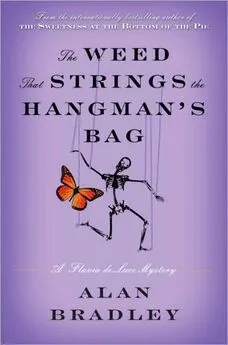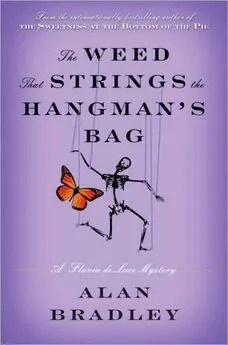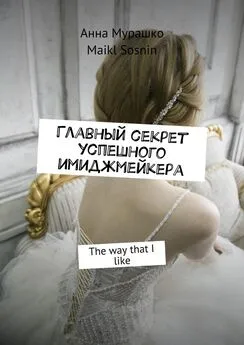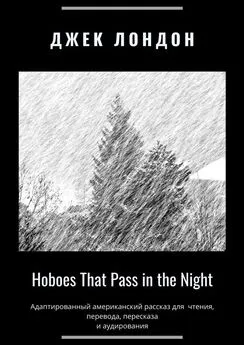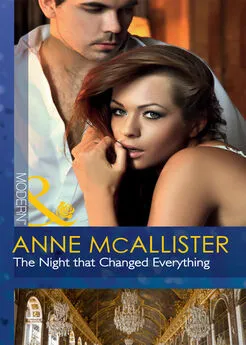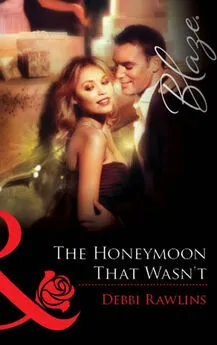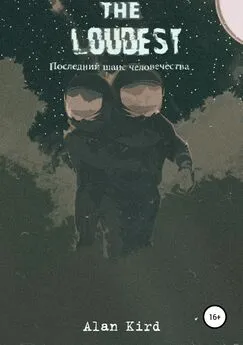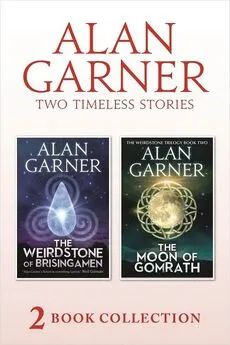Alan Bradley - The Weed That Strings the Hangman's Bag
- Название:The Weed That Strings the Hangman's Bag
- Автор:
- Жанр:
- Издательство:неизвестно
- Год:неизвестен
- ISBN:нет данных
- Рейтинг:
- Избранное:Добавить в избранное
-
Отзывы:
-
Ваша оценка:
Alan Bradley - The Weed That Strings the Hangman's Bag краткое содержание
The Weed That Strings the Hangman's Bag - читать онлайн бесплатно полную версию (весь текст целиком)
Интервал:
Закладка:
They did not even notice my look of disgust.
Aunt Felicity was talking to an elderly person with a hearing trumpet. It seemed, from their conversation, that they were old friends.
"But one mustn't arch one's back and spit!" the old lady was saying, curling her red-nailed fingers into a claw, at which they both cackled obscenely.
Dogger, meanwhile, sat patiently on a bench beneath a yew tree, his eyes closed, a slight smile on his lips, and his face upturned towards the summer sun, looking for all the world like one of those modern brass sculptures called Sunday .
No one paid me the slightest attention. I was on my own.
The double doors in the porch of the parish hall were draped with a rope, from which hung a notice: Police Line — Do Not Cross .
I didn't: I walked round the back of the building and went in by one of the exits.
It was pitch dark inside. At the far end of the corridor, I knew, was the door that opened into the auditorium. To my right were the several steps that led up to the stage.
I could hear the rumble of men's voices, and although I strained my ears to the utmost, I could not make out what they were saying. The black velvet curtains that lined the stage must be absorbing their words.
Unable to make any sense of the murmur, and because I didn't want to risk being caught eavesdropping, I clattered noisily up the stairs.
"Hullo!" I shouted. "Anyone for tea?"
Inspector Hewitt was standing in a pool of light talking to sergeants Woolmer and Graves. At the sight of me, he broke off at once and came striding across the stage behind the puppet theater.
"You oughtn't to be in here. Didn't you see the signs?"
"Sorry," I said, without answering his question. "I came in the back way."
"No signs in the rear, Sergeant?" the Inspector asked Graves.
"Sorry, sir," the sergeant said with a sheepish grin. "I'll see to it right away."
"Too late now," the Inspector said. "The damage is done."
Sergeant Graves lost the grin and his brow furrowed. "Sorry, sir," he said. "Entirely my fault."
"Well," the Inspector went on, "since we're almost finished, it's not a complete disaster. But keep it in mind for next time."
"Yes, sir."
"Now, then," the Inspector said, turning to me, "what are you doing here? And don't give me any guff about tea."
I had learned from past experience that it was best to be frank with the Inspector — at least in replying to direct questions. One could always be helpful, I reminded myself, without spilling one's guts.
"I was making notes upon a few points."
I hadn't made notes, in fact, but now that I'd thought of it, I realized it was a good idea. I'd see to it tonight.
"Notes? Why on earth would you do that?"
Because I could think of nothing to say, I said nothing. I could hardly tell the man that Dogger thought it was murder.
"And now, I'm afraid, I'm going to have to ask you to leave, Flavia."
As he spoke, I looked round desperately for something — anything! — to seize upon.
And suddenly I saw it! I almost whooped with joy. My heart welled up inside me and I could hardly keep from laughing as I spoke.
"Edgar Allan Poe!" I said aloud. "The Purloined Letter."
The Inspector stared at me as if I'd gone mad.
"Are you familiar with the story, Inspector?" I asked. Daffy had read it aloud to us on Christmas Eve.
"Isn't everyone?" he said. "Now, please, if you'll be so good — "
"Then you'll remember where the letter was hidden: on the mantelpiece — in plain sight — dangling from a dirty blue ribbon."
"Of course," he said, with a brief but indulgent smile.
I pointed to the wooden rail of the puppet stage, which was no more than a foot above his head.
"Has the current been switched off?" I asked.
"We're not idiots, Flavia."
"Then," I said, reaching up and almost touching the thing, "perhaps we should tell the vicar we've found his lost bicycle clip."
* SIXTEEN *
IT WAS DIFFICULT, AT first, to see the thing. Black metal on black painted wood was nearly invisible. If it hadn't been for the patterned spray of carbon, I shouldn't have noticed it at all.
Black on black on black. I was proud of myself.
The bicycle clip was pushed down over a wooden strut, as if the strut were an ankle. Beneath it ran a length of electric flex, which connected a row of toggle switches above the stage to the colored footlights below. Even from where I stood, I could see the glint of copper wire where a section of the flex had been stripped of its insulation.
"Good Lord!" the Inspector said. "Whatever makes you think this belongs to the vicar?"
"Several things," I told him, ticking them off on my fingers. "In the first place, I heard him say on Thursday afternoon that he had lost his bicycle clip. In the second place, I know for a fact that it wasn't here yesterday afternoon before the show. Rupert let me have a good look round just before the matinee. And finally, it has the vicar's initials on it. Look here: If you squat a bit and look edge-on, you can see them: D.R. — Denwyn Richardson. Cynthia scratched them on with a needle because he's forever losing things."
"And you're quite sure the clip wasn't here on Saturday afternoon?"
"Positive. I was holding on to that very spot on the railing when Rupert took me up on the bridge — to show me how Galligantus worked."
"I beg your pardon?" The look on the Inspector's face was a puzzle.
"Galligantus. That's the name of the giant in Jack and the Beanstalk . Here, I'll show you. Is it all right to climb up there?" I asked, pointing to the bridge.
"It's extremely irregular, but carry on."
I scrambled up the ladder to the catwalk behind the puppet stage, with the Inspector hot on my heels.
Galligantus was still firmly in position.
"In the third act, as Jack is hacking away at the beanstalk, Rupert pulls this iron lever, which releases Galligantus. He's spring-loaded, you see."
There was a very long silence. Then the Inspector took out his notebook and unscrewed the cap of his biro.
"All right, Flavia," he said with a sigh, "tell me more."
"When Jack chops down the beanstalk, the giant's supposed to come crashing down from the sky. But he didn't, of course ... Rupert did instead."
"Therefore Rupert couldn't have operated the lever. Is that what you're saying?"
"Exactly! If he had, Galligantus would have been triggered. But he wasn't, of course, because the vicar's bicycle clip was clamped over the end of the lever. Black on black. Rupert mustn't have noticed it."
"Good Lord!" the Inspector exclaimed, realizing what I was saying. "Then it wasn't — "
"A tragic accident? No, Inspector. I should hardly say so."
He let out a low whistle.
"See this? Someone's cut away the insulation from this cable," I went on, "right down to the bare wire, then shoved the bicycle clip down on top to cover it. The other end of the bicycle clip is clamped over the end of Galligantus's lever."
"Forming an electrical jumper," he said. "A deliberate short circuit."
"Precisely," I said. "Here — you can see the deposit of carbon where it arced. See where the wood beneath it is a little charred?"
Inspector Hewitt leaned in for a closer look, but said nothing.
"It seems to me," I added, "that the bicycle clip couldn't have been put there until sometime after the first performance. Otherwise, Galligantus couldn't have fallen."
"Flavia," the Inspector said, "you must promise me you will discuss this with no one. Not a word. Do you understand?"
I stared at him for a moment, as if the very thought of doing so were highly offensive.
"He was electrocuted, wasn't he?" I asked.
The Inspector nodded. "Dr. Darby thinks it most likely. We'll have the autopsy results later today."
We'll have the autopsy results? Was the Inspector including me? Did he count me as part of his team? I needed to choose my words carefully.
"My lips are sealed," I said. "Cross my heart and — "
"Thank you, Flavia," he said firmly. "A simple promise is sufficient. Now run along and let me get on with it."
Run along? What jolly cheek! What utter gall!
I'm afraid I made a rude noise on my way out.
As I suspected she would be, Feely was still flirting with Dieter beneath the oaks.
Father stood near the door of the church with the perplexed look on his face of a man trying to decide if he should rush to the aid of someone who has unwittingly wandered into the tiger's cage, but can't quite make up his mind about which of the cage's two occupants is in greater need of saving from the other.
"Feely," he called out at last, "we mustn't keep Mrs. Mullet waiting."
My stomach curdled instantly. Today was Sunday, the day of the week upon which we were force-fed, like Strasbourg geese, upon one of Mrs. Mullet's failed culinary experiments, such as stuffed sow's liver brought whole to the table and passed off as Mock Denbighshire Sweet Loaf.
"Father," Feely said, taking the bull by the horns, "I'd like you to meet Dieter Schrantz."
Father, of course, like everyone else in Bishop's Lacey, was aware that there were German prisoners of war working in the neighbourhood. But until that moment, he had never been put in the position of having to converse with someone he always referred to, at home in Buckshaw's drawing room, as the Enemy.
He offered his hand.
"It's a pleasure to meet you, sir," Dieter said, and I could see that Father was taken aback by Dieter's perfect English. But before he could respond, Feely fired off the next round: "I've invited Dieter to tea," she said. "And he's accepted."
"Providing you approve, of course, sir," Dieter added.
Father seemed flustered. He pulled his spectacles from his waistcoat pocket and began polishing them on his handkerchief. Fortunately, Aunt Felicity arrived in time to intervene.
"Of course he approves!" she said. "Haviland's never been one to hold a grudge, have you, Havvie?"
Like a man in a dream, Father looked round him and remarked, to no one in particular, "Interesting weather."
I took immediate advantage of his momentary confusion.
"Go on ahead without me," I said. "I just want to pop in and make sure Nialla's all right. I'll be home directly."
And no one lifted a finger to stop me.
Mrs. Mullet's cottage was nestled at the far end of Cobbler's Lane, a narrow, dusty track that ran south from the high street and ended at a stile. It was a cozy little place with hollyhocks and a ginger cat dozing in the sun. Her husband, Alf, was sitting on a bench in the yard, carving a willow whistle.
"Well, well," he said when he saw me at his gate, "to what do we owe this most prodigious great pleasure?"
"Good morning, Mr. Mullet," I said, falling effortlessly into my best prunes-and-prisms voice, "I hope you're keeping well?"
"Fair ... fair to troublesome digestion. Sometimes kicks like a kangaroo — elsewise, burns like Rome."
"I'm sorry to hear that," I said, meaning every word of it. We de Luces were not the only ones subjected to Mrs. Mullet's culinary concoctions.
"Here," Alf said, handing me the wooden whistle. "Give 'er a blow. See if you can fetch up an elf."
I took the slender piece of wood and raised it to my lips.
"Perhaps I'd better not," I said. "I don't want to wake Nialla."
"Ha!" he said. "No fear o' that. She's gone afore the sun."
"Gone?"
I was astonished. How could she be gone?
"Where?" I asked.
"God only knows." He shrugged. "Back to Culverhouse Farm, maybe — maybe not. That's all I know. Now give us a toot."
Читать дальшеИнтервал:
Закладка:
